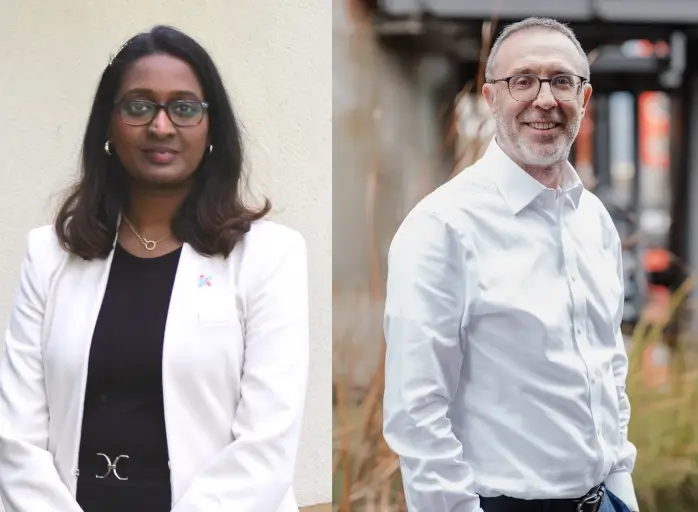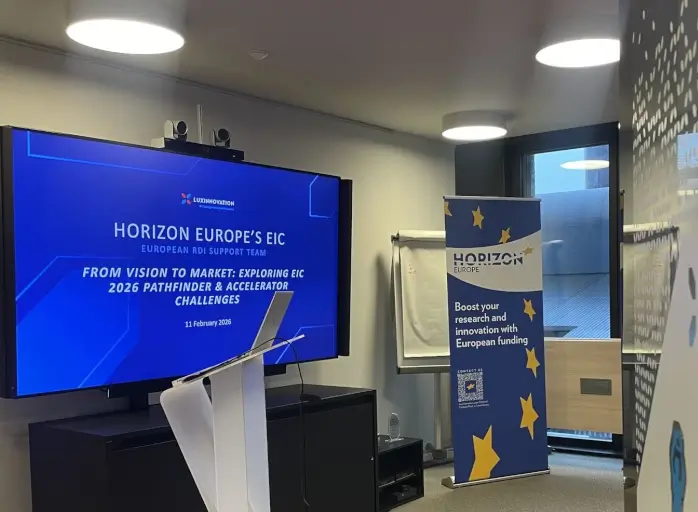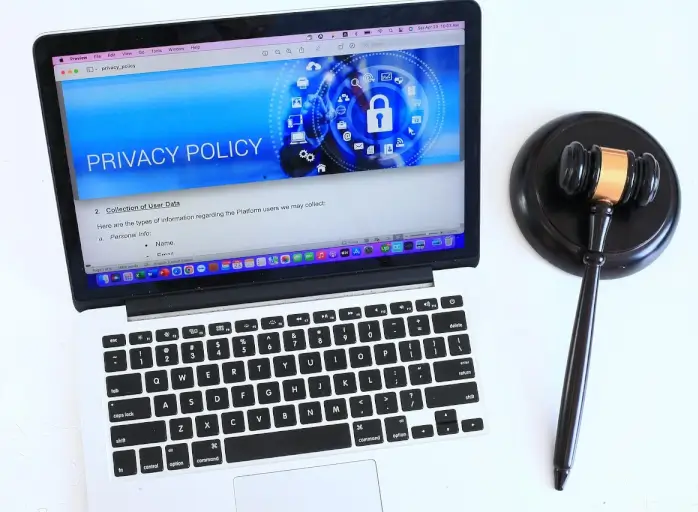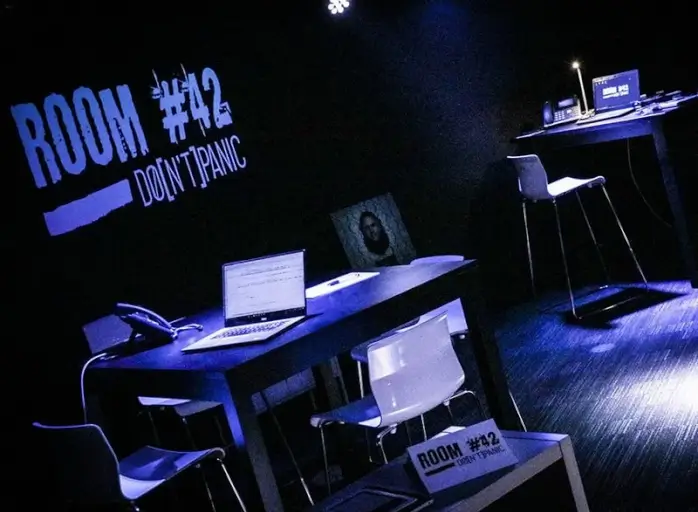
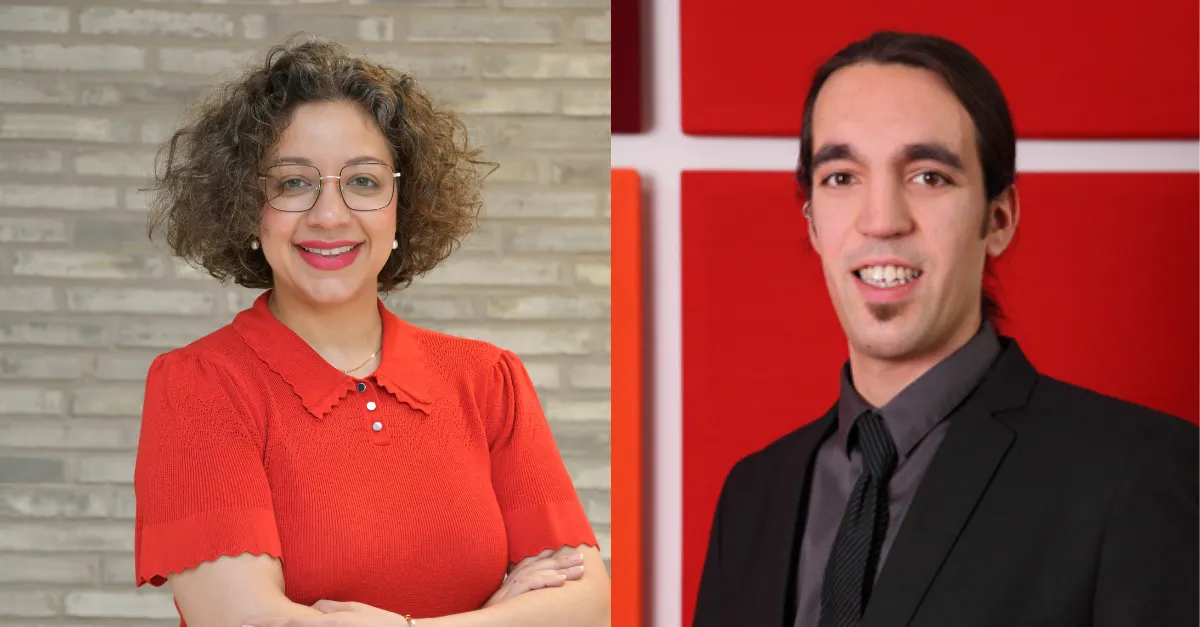
Securing Horizon Europe funding: tips from project Transcend
LIST is currently running 56 Horizon Europe projects, with 15 as the coordinator. Its lead engineers discuss key factors that made its Transcend project grant application successful.
 Abigail Okorodus
Abigail Okorodus
 Cindy Guerlain and Jocelyn Aubert, lead research and technology engineers in the Optimization and Decision Systems Group (OPTIMISE) department at the Luxembourg Institute of Science and Technology (LIST), discuss the centre’s involvement in several projects co-funded by Horizon Europe, the European Union's main programme for research and innovation.
Cindy Guerlain and Jocelyn Aubert, lead research and technology engineers in the Optimization and Decision Systems Group (OPTIMISE) department at the Luxembourg Institute of Science and Technology (LIST), discuss the centre’s involvement in several projects co-funded by Horizon Europe, the European Union's main programme for research and innovation.
They particularly emphasise some of the main factors for the success of its Transcend (Transport resilience against cyber and non-cyber events to prevent network disruption) project application.
What Horizon Europe projects are you involved in?
Cindy Guerlain (CG): As part of our commitment to advancing scientific research and innovation, LIST is actively engaged in several Horizon Europe projects. Our research unit is presently engaged in several impactful European projects. For instance, the LAZARUS project aims to develop a platform for the analysis of resilient and secure software. The CLIMABOROUGH project under the auspices of the European Union aims to build green and climate neutral city-hubs. Another example, Citcom.ai, under the EU DIGITAL framework programme, is dedicated to AI applications in urban settings.
Horizon Europe allows organisations to work with peers and stimulate knowledge sharing.
Cindy Guerlain, LIST
The Transcend project, aims to provide freight transport critical infrastructure operators with an integrated set of advanced tools, guidelines, and technological solutions. The end goal is to reduce risk and enhance the protection and resilience of their (interrelated) critical infrastructures critical infrastructures against physical, cyber and hybrid threats.
Why did you decide to apply for Horizon Europe funding?
Jocelyn Aubert (JA): Horizon Europe is the largest and most prestigious funding instrument for conducting research projects at the European level. It is an ideal tool for fostering international collaboration across Europe and beyond. Such collaboration is essential for providing high level results combining expertise from leading organisations and testing innovations with industry partners.
The Transcend project includes several partners from Luxembourg. Can you discuss some benefits of these collaborations?
CG: The consortium includes seven partners from Luxembourg demonstrating a robust presence within the Luxembourg ecosystem. It brings together academic institutions, industry partners and public sector organisations, including regulatory authorities. Each entity contributes its unique expertise and perspectives. The involvement of industry partners and regulatory authorities will ensure that the results are practical and compliant with the regulatory framework.
An ideal tool for fostering international collaboration across Europe and beyond.
Jocelyn Aubert, LIST
Having multiple partners from Luxembourg reinforces LIST’s role as a central hub in the national research and innovation landscape. This collaboration fosters a cohesive and integrated ecosystem where knowledge and resources are shared, leading to more comprehensive and impactful research outcomes. It also helps align research objectives with national priorities, particularly in the implementation of legal instruments such as the Critical Entities Resilience directive and the Network and Information Security 2 directive. We already have a long-standing relationship with some of our project partners in Luxembourg. This existing relationship will allow us to build upon the results we are already developing together as part of a broader national roadmap.
What do you believe were the key factors that contributed to the success of the Transcend project application?
JA: There are several key factors that contributed to the success of the Transcend project. First, strategic alignment with the call objectives. Our proposal was closely aligned with the objectives of the call, ensuring relevance and meeting the specified criteria. We also aligned our proposal with specific priorities related to the transport sector mentioning key European reference documents in this domain.
Second, a strong and relevant consortium. We assembled a robust consortium with a diverse range of partners who are bringing specific expertise in transport, cybersecurity, IT development etc. The active involvement of competent national authorities, such as the High Commission for National Protection, Institut Luxembourgeois de Régulation, and the Luxembourg House of Cybersecurity, are ensuring that our solutions are aligned with national policies, which brings a major advantage during the evaluation in my opinion.
We still receive requests from academia and industry based on a Horizon 2020 project that we led ten years ago.
Cindy Guerlain, LIST
Third, a clear and accessible proposal. We ensured our proposal was easy to read, with clear messages, concise sentences, and well-spaced text. Additionally, we had it proofread by a native English speaker. Considering that evaluators might not be experts in our specific topic, we aimed for clarity and accessibility.
Finally, early and methodological preparation. We started building the proposal eight months before the submission deadline, allowing ample time for thorough development and refinement. The preparation process was divided into well-defined phases: an initial phase with a concept note, a literature review, a core team, pilots, an intermediate step with a list of the main deliverables, a work breakdown structure, a budget estimation, and finally the proposal writing. Roles and responsibilities to complete the proposal were clearly identified and set in advance so to allow partners to progress on their rhythm during the summer period. One month before the submission, we had already an advanced draft of the proposal.
How has participating in Horizon Europe advanced your research? Can you provide any specific examples of how it has enabled your research group to stand out in your field?
CG: Horizon Europe allows organisations to work with peers and stimulate knowledge sharing. For a research and technology organisation in a small country, it is crucial to not limit our research to a narrow scope. For example, conducting extensive benchmarking across countries represented in the consortium provides access to knowledge that would otherwise be inaccessible due to language barriers.
Our proposal was closely aligned with the objectives of the call, ensuring relevance and meeting the specified criteria.
Jocelyn Aubert, LIST
We still receive requests from academia and industry based on a Horizon 2020 project that we led ten years ago. Additionally, participating in these projects allows us to import innovative concepts and test them with local stakeholders, thereby enhancing our research capabilities and impact.
How did Luxinnovation’s support contribute to your success, and what resources or tools did you find especially valuable?
JA: We contacted Luxinnovation at the launch of our application and sought their support throughout the entire ideation process. They assisted us in interpreting the call for proposals and proofreading all the application documents. More importantly, they were always available to discuss the project scope, identify past and current projects in the domain, and make recommendations on suitable consortium partners.
As this is a lump sum project and LIST has limited experience with this recent funding type, Luxinnovation also offered valuable suggestions for structuring our activities and preparing the budget.



